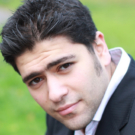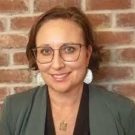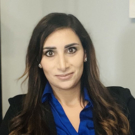Speakers

Abdulrahman Elshayyal
CEO
Alaraby Aljadeed

Courtney Radsch
Advocacy Director
Committee to Protect Journalists
Moderator
Event Summary
As investigations into the GCC crisis and mediation efforts continue, Arab Center Washington DC (ACW) convened a panel to discuss the role of media in the crisis, the implications of revelations of hacking, and the targeting of media outlets and restricting free press that have emerged. ACW’s Executive Director, Khalil Jahshan, welcomed attendees and provided an overview of the crisis and mediation efforts. Mr. Jahshan noted that among the demands presented by the countries that have blockaded Qatar, the one of particular importance to the discussion was the demand to shut down media outlets backed by Qatar, including Al Jazeera and its affiliates. He noted that while this is of obvious concern to media professionals, it is also a serious matter for all those who care about freedom of the press and freedom of expression in the region.
The convened panel included, in speaking order: Tamara Kharroub, Assistant Executive Director and Senior Analyst at ACW; Courtney Radsch, Advocacy Director at the Committee to Protect Journalists; and Abdulrahman Elshayyal, CEO of the London-based media outlet Alaraby Aljadeed.
Tamara Kharroub’s remarks focused on three areas: cyber wars and technology, the public sphere and democratization, and human rights and international law. She said that for decades, the media has been used in politics and in conflict to gain an advantage, and the GCC crisis is no exception. She presented examples from history, including the World War I propaganda campaign posters and the controversial “Daisy” ad of Lyndon Johnson during the 1964 US presidential campaign. Dr. Kharroub noted that similar tactics, using more modern technology, are being used for cyber war today. For example, Saudi Arabia, the UAE, and Bahrain used social media to target and arrest individuals who expressed sympathy with Qatar online. Another, more serious, example is the report by US intelligence agencies that the UAE government was behind the hacking of the Qatar News Agency, in which hackers attributed false statements to the emir of Qatar. She stated that the timing and deliberate nature of the hack “can be considered an act of war.”
Dr. Kharroub stated that while media can be used as a tool of war to suppress freedoms and legitimize conflicts, it is also an important component of democracy. Participatory democracies are built on the premise of informed citizens, debate, and discussion, and this is enabled most prominently through the media, which facilitates a free forum for debate. With the arrival of satellite technology in the 90s, the news media in the Arab world expanded beyond government-controlled organizations and is now able to hold government institutions accountable. It also enables citizens to be informed and participate in the political process. Dr. Kharroub noted that current demands to shut down media organizations are “certainly an attempt to close these public forums of free discussion” of issues of public concern. Freedom of the press and access to information is a right, she said, and it is an important catalyst and prerequisite to democracy in the Arab world.
Finally, she stated that the demands to shut down media organizations violate the right to information and the freedom of the press; they are against international law and human rights. The UN Human Rights Council considers closing media organizations an attack on journalists. She concluded that if there were legitimate concerns regarding possible negative effects of reporting, the solution is not to suppress the freedom of press and access to information. Rather, there are certain measures that can and have been taken including facilitating evidence-based reporting, fact-checking, verifying sources, and enhancing media literacy.
Courtney Radsch said that part of the important role that Al Jazeera and similar organizations have played in the region is “giving voice to the voiceless” and covering issues that many other news organizations do not want to cover. She noted the hypocrisy inherent in the blockading countries’ call for the closure of independent media outlets, saying that it is because they are worried about independent coverage. She said that Al Jazeera emerged partly as an alternative to Saudi-backed media in the region, which was dominant for many years, and went on to provide multiple examples of countries in the region restricting free press to suit their policy agendas. To illustrate this point, Dr. Radsch cited examples in Egypt, Jordan, the UAE, and Qatar, saying “we don’t expect that Al Jazeera in Qatar or Al Arabiya in Dubai are going to cover those countries well, but they are playing an important role in the region because we need a pluralistic media.”
Referring to the current GCC crisis, she stated that it seems geo-political dynamics were used as an excuse to clamp down on the media. “I think they miscalculated,” said Dr. Radsch. “I think it’s recognized around the world,” she continued, “that Al Jazeera and other news organizations are playing a very important role in bringing stories to the forefront,” stories that Arabs and people around the world are interested in. She stated that media and information literacy are important and underlie many of the issues at the forefront of the global media agenda, including “fake news” and countering violent extremism online. Dr. Radsch concluded that governments and societies should promote policies that allow people to “make choices about their media consumption, and have access to pluralistic views,” not ones that attempt to restrict access to the news media.
Abdulrahman Elshayyal began his remarks with a note about the First Amendment, calling it a “short but very important protector of rights” that has been taken for granted. He added that the press must be protected as “an independent bulwark against the corruption of the powerful, and a light to be shone upon the dark and secretive misdemeanors of those who rule our lives.” In a region where transparency is a rare commodity, he noted, filtering of information and censorship damages the development of people and limits the extent to which they can participate in civil society.
Mr. Elshayyal stated that Alaraby Aljadeed and other similar outlets in the region are setting the standard for what many regimes fear: an independent way of thought and a belief in freedom and democracy. He noted that the blockading nations of the current crisis have banned Alaraby Aljadeed since December 2015. “We are not affiliated to any group,” stated Mr. Elshayyal. “In fact, we hold all groups in the region to account” and added that blocking access to Alaraby Aljadeed’s website was a message that independent outlets will not be tolerated, especially those that people have come to respect and trust. He said that the destructive way in which the media has been used in this crisis exemplifies the approach that these countries are taking regarding the media and press freedom as a whole.
The “brief sojourn” of less restrictive censorship in the GCC, he stated, was destroyed after the Arab Spring, with media being used for smear campaigns against democracy activists and people who wanted change. This was “the media forced to destroy itself,” he said. Mr. Elshayyal went on to say that the recent campaign has witnessed similar examples of media being used to discredit individuals, intimidate journalists, and create fear among individuals who believe in a “vision for a new Arab region and world that is free and independent.”
Mr. Elshayyal noted that private media outlets in the region are not that private; in fact, many anchors are officers in state intelligence agencies. He also stated that the blockading countries have infiltrated social media circles through very sophisticated “control rooms” where millions of dollars are spent on creating false campaigns online and destroying organically grown hashtags using advertisements or false information. Further, Mr. Elshayyal explained that within the political and economic motivations behind the blockade lie motivations to censor, block, and control media within the GCC. He opined that “it is a far worse time to be a Saudi or Emirati journalist now than it is to be a Qatari one.” Given the significance of these countries, he stated, this should be of concern to “everyone here” because lack of free media can be one of the factors that cause extremism or terrorism and a key obstacle to human development. Mr. Elshayyal stated that the point the GCC has reached has “outdone any Orwellian future we could never wish to live in,” concluding that citizens cannot accept this “blatant encroachment of the state.”


